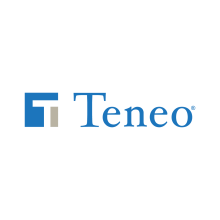This week, after prolonged uncertainty, Peru gets a new left-wing president. Venezuela‘s President Nicolas Maduro is sending mixed messages about possible talks with the opposition. In Brazil, President Jair Bolsonaro is expected to appoint a “Big Center” figure to a key post. Mexico holds a referendum that is more show than substance. In Chile, the center-left is belatedly taking steps to participate in the November presidential elections, though only after the radical left and center-right selected their most competitive candidates. Finally, Cuba‘s regime is on watch for further protests as the pandemic worsens.
Peru
Pedro Castillo will be sworn in as president on 28 July following a protracted period of uncertainty in the wake of the June run-off, which Castillo won by the narrowest of margins. The unanswered questions and doubts surrounding Castillo's political convictions, experience, independence from a powerful political mentor, and relations with his party are notable. How Castillo intends to navigate Congress, where his Peru Libre (PL) party, together with its Together for Peru (JPP) ally, total only 42 out of 130 seats, will be an immediate challenge. Opposition parties in Congress should deliver an early signal of their intentions today, 26 July, as the congressional leadership group is elected.
Venezuela
President Nicolas Maduro said on 24 July that he believed that Norwegian- brokered talks with at least some opposition parties are likely to go ahead in Mexico in August. Maduro's comments follow the appearance last week at the Fedecamaras business chamber's annual meeting of VP Delcy Rodriguez; her appearance was significant because Fedecamaras has been at loggerheads with Chavismo for over 20 years. However, the apparent signs of conciliation are at odds with the regime's offensive against the Popular Will (VP) party; a notable party figure, Freddy Guevara, was arrested earlier this month, and opposition leader Juan Guaido intimidated. While Maduro wants sanctions relief, the recent outbreak of protests in Cuba could change his calculations as the regime looks to prevent any spillover. Snuffing out any protests would take precedence over regime efforts to put a gloss of legitimacy on gubernatorial, mayoral, and municipal elections scheduled for November.
Brazil
President Jair Bolsonaro will confirm today, 26 July, the appointment as Chief-of-Staff of the Presidency the Progressives Party (PP)'s president, Ciro Nogueira, a prominent leader of the pro-government “Big Center” (a group of pragmatic, non-ideological parties). This is the first time since democratization that a president appoints a top congressional leader for such a strategic post within the presidency instead of a close aide from his/her circle of trust. In parallel, Congress is in recess from 18 to 31 July. It is expected that the president will only sanction the budget law (LDO) after recess. He has committed to vetoing a tripling of the electoral fund for the October 2022 elections, but negotiations are on cutting only one-third of the proposed amount.
Mexico
On 1 August, there will be a public referendum to decide whether to investigate ex-presidents for corruption and other wrongdoing. Officially, voters will be asked whether they agree that there should be action to “clarify” decisions by “political actors” over recent years. For the referendum to be valid, turnout needs to be above 40%, or 37mn votes – a very high bar that is highly unlikely to be reached. However, the referendum allows President Andres Manuel Lopez Obrador (AMLO) to maintain his anti-corruption rhetoric. AMLO's recourse to a referendum is also a reminder of his demagoguery. Unofficial referendums (with minimal participation) have previously been used as cover to cancel or advance major infrastructure and investment projects.
Chile
The Senate president Yasna Provoste announced on 23 July that she would compete for the presidential nomination of the center-left bloc now going under the name of Unidad Constituyente. The first round of the presidential election is scheduled for November. Provoste, who hails from the centrist Christian Democrats (DC), only emerged as a presidential contender in May. However, Unidad Constituyente did not participate in this month's general primaries, which means the bloc is now organizing its own primary to take place on 21 August. The key question is whether the center-left bloc – whether under Provoste or Paula Narvaez of the Socialists (PS) – has left it too late as the more radical left bloc and the center-right effectively set the electoral pace. The candidate for the more radical left bloc is Gabriel Boric, while the center-right's presidential candidate is Sebastian Sichel. Both are seen as pragmatists within their respective coalitions, which could mean Unidad Constituyente gets squeezed out of contention.
Cuba
The government will this week continue efforts to stave off further protests following the incidents of 11 July. Food rations to the population are being boosted, while authorities are promising fewer interruptions to the power supply. At the same time, the regime led by President Miguel Diaz-Canel is looking to regain the digital agenda; the scale of the recent protests, and the speed at which they spread, can be partly explained by Cubans' increasing access to the internet, social media, and messaging platforms. However, the spread of the coronavirus has reached new records over recent days, with some 42,000 active cases estimated over the weekend. Diaz-Canel will also look to balance out tighter US sanctions with recent gestures of support from Mexico's Andres Manuel Lopez Obrador (AMLO) and Russian humanitarian aid.


